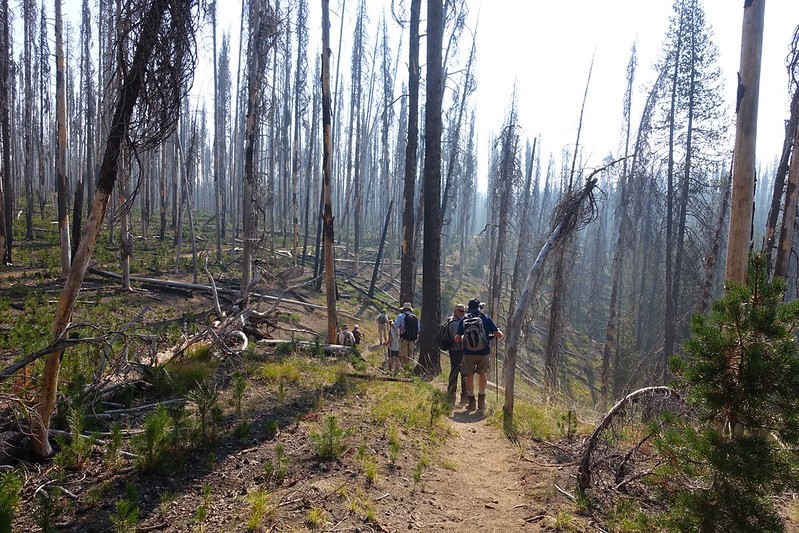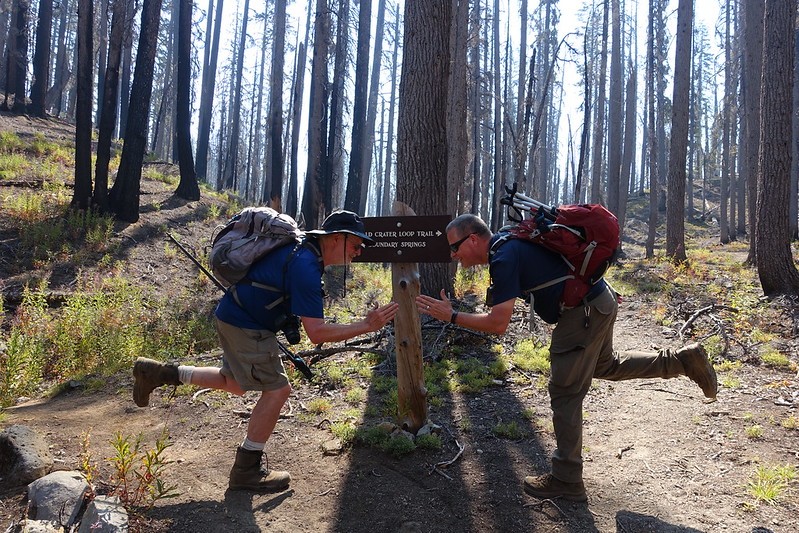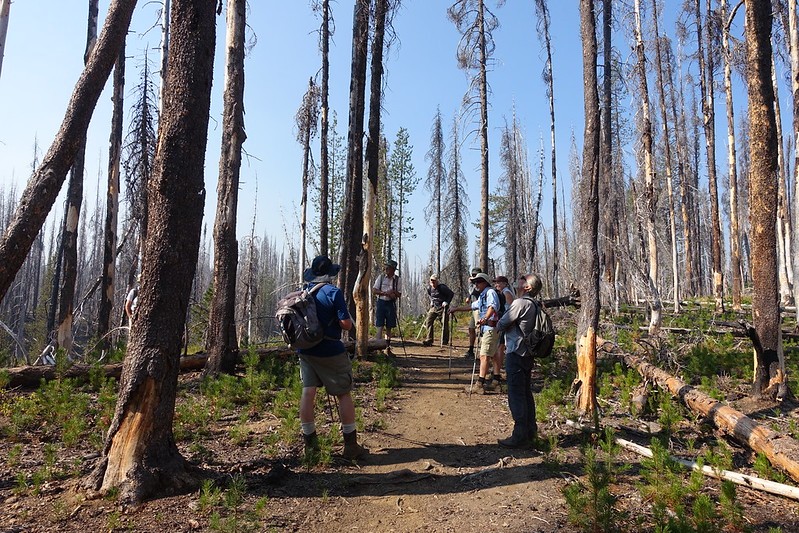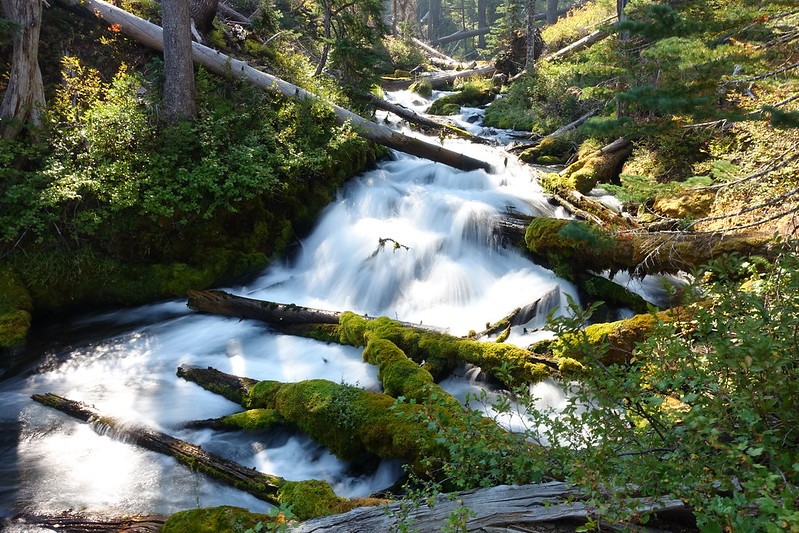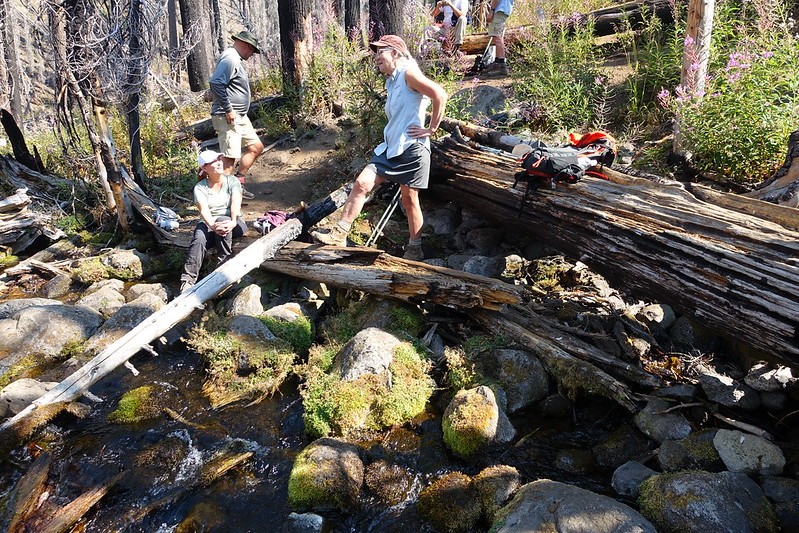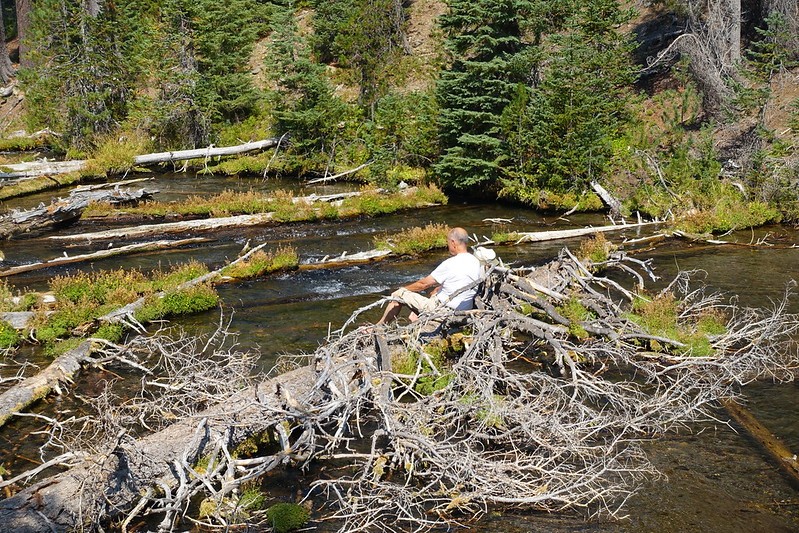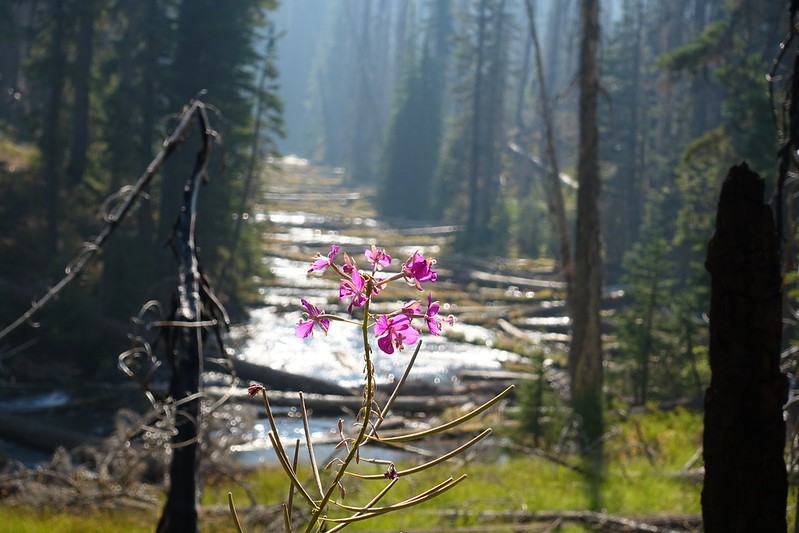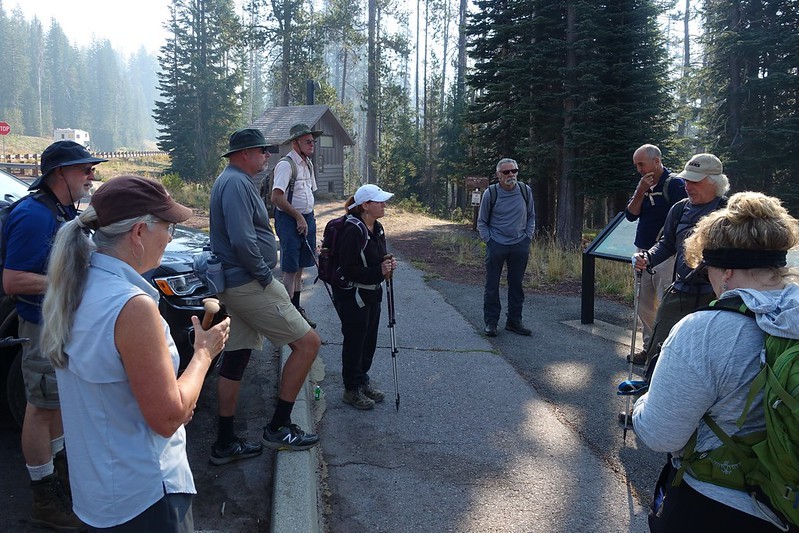Hike Coordinator: Brad Bishop
Narration from “Richard Hikes” by Richard O’Neill
The Great Oregon Burn Zone Tour of 2020 continued on a bright summer day in early September with this hike to Boundary Springs. The lodgepole forest surrounding Boundary Springs had perished in the same fire that had immolated the Red Cone area, the locale of my prior hike. But hey, I often say there is great beauty in a burn zone so apparently this has been one especially beautiful summer!
The thin lodgepole forest surrounding the Boundary Springs Trail was absolutely decimated in 2015’s Crescent Fire. No tree survived, the destruction was utter and complete and all that remains of the forest are countless acres of ghostly white snags standing upright, resembling on a larger basis so many porcupine quills in a dog’s snout. I still can’t fathom how fire can irrevocably and completely destroy an entire forest, yet spare all the mosquitoes. The adult trees were left lifeless as a statue but life always finds a way and hundreds of little lodgepole seedlings were already taking root at the feet of their deceased parents.
Life also abounds in the form of a hiking club and eleven of us set foot on the Boundary Springs Trail, mouths collectively agape at the terrible yet awesome sight of a totally destroyed forest. Also in keeping with this summer’s theme of hiking in lodgepole forests (be they dead or alive) in volcanic soils, those of us at the tail end of the hiking line ate everybody else’s dust kicked up by scuffing boots.
It didn’t take long for a ravine to appear on the left side of the trail with a small creek coursing at the bottom. Soft soils are no match for moving water and this small creek was eagerly engaged on its short journey to join up with the nearby Rogue River. Be it small, nonetheless the creek had cut a sizeable canyon in all the soft pumice and volcanic ash that surrounds nearby Crater Lake.
Without preamble or ceremony, the trail dove down into yet another canyon, crossed the adolescent Rogue River, and then climbed up to the opposite side of the canyon. Boundary Springs is so named for its proximity to the north boundary of Crater Lake National Park and before long, we passed a sign commemorating entry into the park, but we had no issues getting past customs.
Because the moist air next to the river offered some protection from the wildfire, there is ample greenery flourishing right next to the Rogue. Small grassy meadows were interspersed between tall healthy trees sporting green leaves and needles, the vegetation being most alluring to hikers slogging away in the hot and dusty environs above the canyon. Good thing then, that the trail began a steady descent down to river level and subsequently, to Boundary Springs itself.
The river was shallow and a multitude of fallen trees and logs clogged the flowing water, creating a series of natural fish weirs. I’d be tempted to say the logs fell into the river because of the fire, but the river channel has been log-littered since long before my first pre-fire hike here, so maybe it’s just a Rogue River thing that occurs naturally. Despite the relative shallowness of the river, there are a few places where the river had to funnel into a narrow chute, giving rise to several photogenic cascades and waterfalls. As a precursor to Boundary Springs, all manner of seeps and springs began to gush forth next to the trail with ever increasing frequency. Moss and other assorted greenery flourished next to all the seeps, taking full advantage of the free water available just for the taking.
Boundary Springs is a special place because it’s just not every day where a full flowing river emerges from the ground. You can stand on top of the springs, look downstream, and the Rogue River will look just like a genuine river should. Turn around and look upstream though, it’s a different story: nothing but dry ground and burned forest with nary a drop of water to be seen. Apparently there’s no stream in upstream! Because the water has been filtered clean during its long underground journey, there is nothing like a gulp of fresh Boundary Springs water. All life should be just like that drink of water.
While the Boundary Springs Trail continues deeper into Crater Lake Park, becoming part of the Bald Crater Loop (described in the previous blog about Red Cone Spring), our business here was finished for the most part. Some of us went to visit West Lake while others just hiked straight back but all wound up eventually at the Boundary Springs Trailhead. The parking lot was full because apparently everybody wants to be outdoors during a pandemic and the trail had been noticeably busier than normal. Evidently we were not the only people out and about on a Great Oregon Burn Zone Tour.
Read about this hike on Richard O’Neill’s Blog
More pictures on Richard O’Neill’s Flickr page and Lane Harris’ Flickr page
Pictures below by Lane Harris


